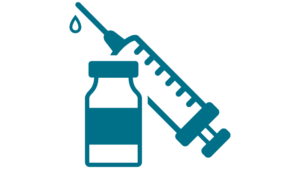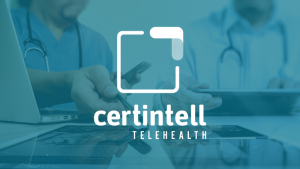Certintell’s newest blog series, “Industry Insights,” takes a look at what topics are buzzing with popularity in the mHealth and care management arena for Community Health Centers (CHCs), FQHCs and other community-based organizations. Here, you can explore how legislation might affect your workflows, what statistics might be preventing better patient outcomes and tips for pushing past your biggest care barriers. Stay on top of what FQHC news you should know below! This month, agencies plan for 2023 population health, address AAPI community disparities, communities hire teens as CHWs, and Dollar General starts providing healthcare services:
 CMS Looks at 2023 as a Key Year for ACO & High-Risk Care Models
CMS Looks at 2023 as a Key Year for ACO & High-Risk Care Models
In 2023, CMS is continuing to ramp up its value-based care (VBC) campaigns and initiatives. The goal is for all Medicare patients to be served by a VBC provider by 2023. They are pushing this change in a number of ways, including implementing new models for providers to join. Specifically, leaders in CMS and other parts of the healthcare industry are looking at providers’ performance metrics under these models, to serve as evidence to scale in 2024.
One of two care models gaining notable attention includes the ACO REACH Model, which focuses on targeting Social Determinants of Health, health equity and access. The second is the Kidney Care Choice (KCC) Model, focusing on improved care coordination for Medicare beneficiaries with stage four and five chronic kidney disease and end-stage renal disease. The number of FQHCs, Rural Health Centers (RHCs) and Critical Access Hospitals participating in the ACO Reach Model totals to 824 this year, which is more than twice the number from last year. For the KCC model, there will be 130 participating entities that includes more than 8,000 participating providers and almost 250,000 beneficiaries. This represents an 87 percent increase in participating organizations from last year and a 62 percent increase in the number of beneficiaries.
White House Releases Plan to Advance Health Equity for AAPI Communities
In mid-January, the Biden-Harris administration released the first-ever National Strategy to Advance Equity, Justice and Opportunity for Asian-American (AA), Native Hawaiian, and Pacific Islander (NHPI) Communities. This new plan engages 32 federal agencies to help turn the tide of disparities. A few highlights FQHCs and other community-based organizations might find informative for their patients include:
- The White House Office of Science and Technology will back the revision of the directive on Standards for Maintaining, Collecting, and Presenting Federal Data on Race and Ethnicity. This approach aims to collect higher quality data on Asian American and NHPI communities to promote better understanding.
- The Detailed Demographic and Housing Characteristics file from the 2020 Census is also slated to be released this summer, which will include insightful statistics on these communities that do not exist in any other data collection.
- The Equal Employment Opportunity Commission released a data visualization tool that allows users to analyze demographic data and identify national origin groups who have high rates of limited English proficiency.
- *Note to CHCs: These three initiatives could be very helpful for population health planning
- The Department of Transportation is looking for ways to strengthen transportation equity
- The Food and Drug Administration created culturally-competent COVID-19 health messages in Mandarin, Cantonese, Hmong, Korean, Tagalog, and Vietnamese. The Health Resources and Services Administration also collaborated with the Pacific Basin Telehealth Resource Center to produce a “Translation Toolkit,” that includes resources in Japanese, Chuukese, Ilocano, Korean, Marshallese, Samoan, Tagalog, Chinese (Simplified and Traditional), and Vietnamese.
- The Federal Communications Commission created fact-sheets for consumers about its Affordable Connectivity Program and translated them into Chinese (Simplified and Traditional), Korean, Vietnamese, and Tagalog. This could be helpful when addressing barriers to telehealth for patients of these communities.
- Immigration and Customs Enforcement (ICE) issued a directive that could protect AA and NHPI communities from deportation, if they are victims of domestic violence, hate crimes or human trafficking.
 Dollar General Joins List of Retailers Expanding into Healthcare, Potentially Competing Against FQHCs
Dollar General Joins List of Retailers Expanding into Healthcare, Potentially Competing Against FQHCs
During the third week of January, retailer Dollar General announced its plans to pilot three mobile health clinics at three stores in Tennessee, in an effort to become a destination for comprehensive health care.
The retailer is partnering with DocGo to set up large medical vans in store parking lots, whose services are billable by Medicaid, TennCare, Medicare and other commercial insurance plans. A cash-paying option will also be available.
Its on-site clinicians can perform physicals and routine checkups, vaccinations, lab testing, diagnostics like EKGs, wound care and urgent care services along with chronic condition management for patients with hypertension, diabetes, asthma and chronic obstructive pulmonary disease.
HIMMS Offers Insight As to What’s Next for Telehealth & Interoperability 
The Healthcare Information and Management Systems Society (HIMSS), is seeing the culmination of its efforts over the past few years come to fruition in 2023. In January, the nonprofit organization announced some insight into how they think Health IT policy will change this year and in the future. Some highlights from their government relations team are as follows:
- With CMS announcing that telehealth flexibilities will be extended until the end of 2024, HIMSS says it plans to use the next two years to gather additional data on telehealth’s cost-effectiveness to lobby for its permanence to Congress
- HIMSS will continue working with the Senate Broadband Caucus to promote the Affordable Connectivity Outreach Grant Program, which will announce grantees on or before March 10.
- HIMSS also discussed CMS’ new proposed ruling to improve the electronic exchange of healthcare data and processes related to prior authorization. Comments are due in early March, and HIMSS plans to stress the importance of using the most current information sharing standards, use cases from Integrating Healthcare Enterprise and the National Council for Prescription Drug Program standards.
- The organization is also submitting comments to the Department of Health and Human Services’ proposal to significantly change the procedure for substance use confidentiality. HIMSS is a founding member of the Patient ID Now Coalition, which calls for a national patient identifier to promote easier exchange of patient information between providers.
 In One Community, Teens are Employed as Community Health Workers to Address Covid-19 Vaccine Hesitancy Among their Peers
In One Community, Teens are Employed as Community Health Workers to Address Covid-19 Vaccine Hesitancy Among their Peers
Possibly inspiring FQHC news, Fresno County has recently recruited 35 students to discuss how Covid-19 vaccines prevent serious illness, hospitalization and death to their relatives, peers and community members and encourage them to stay updated on their shots. They are employed under the junior community health worker program, called Promotoritos, based on the promotora model which employs non-licensed health workers in Latino communities to support community members with resource navigation. Because Promotoras are usually trusted members of the community, along with young people, it makes these teens ideal when trying to reach a broad range of people, says the CEO of Fresno Building Healthy Communities.
The employed teens are mainly Latino, immigrants without legal status, refugee students, or children of immigrants. They have undergone 20 hours of training, including social media campaign strategies. In return, they earned school credit and were paid $15 an hour last year.
Check back here for more FQHC news at the end of every month!



